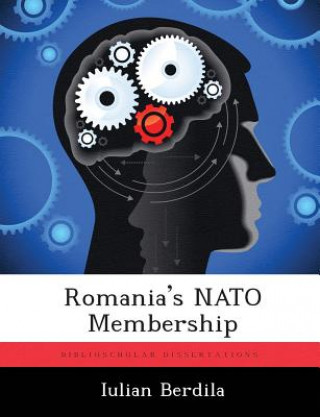
Kod: 08243289
Romania's NATO Membership
Autor Iulian Berdila
Romania represents a reliable NATO member and an emergent democracy among the Eastern European countries. In 2004, Romania became a NATO member and will be integrated in the European Union in 2007. However, these achievements requ ... więcej
- Język:
 Angielski
Angielski - Oprawa: Miękka
- Liczba stron: 52
Wydawca: Biblioscholar, 2012
- Więcej informacji o książce

56.33 €
Zwykle: 57.46 €
Oszczędzasz 1.12 €

Dostępna u dostawcy
Wysyłamy za 15 - 20 dni
Zobacz książki o podobnej tematyce
-

Initial Training of Surface Warfare Officers
56.33 € -1 % -

Smart and Simple Financial Strategies for Busy People
14.65 € -18 % -

Future of NATO Airpower
55.14 € -
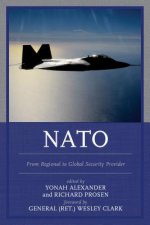
NATO
71.29 € -

I've Got Your Back
31.40 € -

Adventures in Infertility
19.34 € -6 % -

Free to Live, Free to Love
21.43 € -

Almost There
15.75 € -24 % -

Beatles Generation
17.24 € -23 % -

Moments That Matter
20.83 € -24 % -

Feeling Numb
11.96 € -

Take Your Time, Go Slowly
18.94 € -

Make Your Point!
23.33 € -

Chicago, Milwaukee, St. Paul & Pacific Railroad Company V. Goldhammer U.S. Supreme Court Transcript of Record with Supporting Pleadings
27.81 € -18 %
Bon podarunkowy: Radość gwarantowana
- Podaruj bon o dowolnej wartości, a my się zajmiemy resztą.
- Bon podarunkowy dotyczy całej naszej oferty.
- Możesz wydrukować elektroniczny bon z e-maila a następnie przekazać go obdarowanemu.
- Ważność bonu wynosi 12 miesięcy od daty wystawienia.
Więcej informacji o Romania's NATO Membership
Za ten zakup dostaniesz 143 punkty
 Opis
Opis
Romania represents a reliable NATO member and an emergent democracy among the Eastern European countries. In 2004, Romania became a NATO member and will be integrated in the European Union in 2007. However, these achievements required Romania to go through challenging reforms and to implement Western standards. NATO membership represented the first challenge after the fall of communism in the early 1990's. The process for NATO developed along three main dimensions: NATO's evolution after the Cold War, Romania's historical position toward Western integration and Romania's military reform after the Warsaw Pact dissolved. After 1990, NATO's own evolution represented the main process that influenced decisively Romania's development. NATO had to confront two policy issues: the relevance of the Alliance after the fall of the Soviet Union and the rationale for including former Eastern European countries. NATO's approach was to encourage former Warsaw Pact countries to cooperate within NATO's security forum to maintain stability in Eastern Europe. Moreover, the Eastern European countries could develop policies and plans for NATO membership. At the same time, the possible NATO enlargement could redefine NATO's role and preserve its relevancy. Romania's communist domination for almost five decades after World War II limited its opportunities for becoming a democratic country. Nicolae Ceausescu's dictatorship produced negative political, social and economic effects and influenced the West's perception of Romania. However, Romania started to review its servitude to the Soviet regime in the mid 1960's. The West responded positively but remained skeptical after Ceausescu's failure to improve social and economic conditions. After the 1989 Revolution, Romania struggled to create the conditions for NATO and EU membership. Political consensus and proper resource allocation remained the constant issues for the post-1989 Romanian governments. Besides addressing social issues to demons
 Szczegóły książki
Szczegóły książki
Kategoria Książki po angielsku Society & social sciences Education
56.33 €
- Pełny tytuł: Romania's NATO Membership
- Autor: Iulian Berdila
- Język:
 Angielski
Angielski - Oprawa: Miękka
- Liczba stron: 52
- EAN: 9781288316953
- ISBN: 9781288316953
- ID: 08243289
- Wydawca: Biblioscholar
- Waga: 109 g
- Wymiary: 246 × 189 × 3 mm
- Data wydania: 19. November 2012
Ulubione w innej kategorii
-

Cambridge IGCSE (R) & O Level Complete Physics: Student Book Fourth Edition
41.58 € -

Cambridge IGCSE (R) & O Level Complete Chemistry: Student Book Fourth Edition
42.47 € -

Cambridge IGCSE (R) & O Level Complete Biology: Student Book Fourth Edition
39.18 € -

KS3 Maths 10-Minute Weekly Workouts - Year 7
8.07 € -6 % -

KS3 Maths 10-Minute Weekly Workouts - Year 8
8.07 € -6 % -
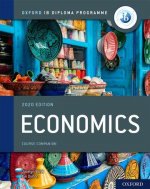
Oxford IB Diploma Programme: IB Economics Course Book
62.32 € -

OET Preparation
9.76 € -
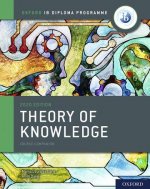
Oxford IB Diploma Programme: IB Theory of Knowledge Course Book
58.03 € -

Powerful Teaching: Unleash the Science of Learning
26.22 € -25 % -

1000 TRIOS or gapped sentences for Cambridge Advanced and Proficiency Exams
24.32 € -
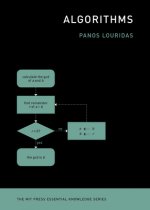
Algorithms
15.15 € -15 % -

Jim Trelease's Read-aloud Handbook
16.84 € -26 % -

The End of Education
13.45 € -25 % -

Deep Healing and Transformation
48.26 € -

ESL/ELL Teacher's Survival Guide: Ready-to-Use Strategies, Tools, and Activities for Teaching En glish Language Learners of All Levels, 2nd Edition
27.61 € -26 % -

Donny's Unauthorized Technical Guide to Harley Davidson 1936 to Present
42.97 € -23 % -

geog.2 Workbook
12.36 € -

Towards a Philosophy of Education in Modern English: Volume 6 of Charlotte Mason's Series
15.35 € -

AQA GCSE German Higher Practice Papers
15.15 € -

Motivational Interviewing: A Workbook for Change Agents
25.12 € -1 % -

All About Diamonds
26.32 € -

Business Partner B1 Workbook
17.44 € -7 % -

Business Partner B2 Workbook
16.84 € -2 % -

Blue Book of Grammar and Punctuation: An Easy- to-Use Guide with Clear Rules, Real-World Examples , and Reproducible Quizzes, Twelfth Edition
15.15 € -27 % -

Business Partner B1+ Workbook
16.84 € -2 % -

Speed and Accuracy: Multiplication
8.57 € -

Pearson Edexcel International GCSE (9-1) English Language B Student Book
50.45 € -

Positive Discipline Tools for Teachers
14.05 € -26 % -

Speed and Accuracy: Division
8.57 € -
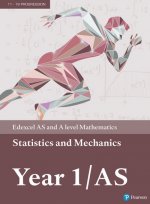
Pearson Edexcel AS and A level Mathematics Statistics & Mechanics Year 1/AS Textbook + e-book
17.54 € -
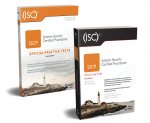
(ISC) SSCP SG & SSCP Practice Test Kit, 3e
64.21 € -28 % -

Read Write Inc. Phonics: Red Ditty Book Bag Books (Mixed Pack of 10)
73.69 € -

Imagine If...
10.96 € -22 % -

OET Reading Subtest Preparation
12.46 € -7 % -

Vol 2 Blackletter Lettering Adventures
25.42 € -

AS & A Level Maths For Dummies
17.34 € -26 % -

Grade 9-1 GCSE Maths AQA Revision Question Cards - Higher
9.96 € -4 % -

Forensic Linguistics Articles
14.35 € -1 % -

CompTIA Security+ Review Guide - Exam SY0-601
24.82 € -23 % -

Practical Guide on Veterinary First Aid using Homeopathy
14.65 € -2 % -
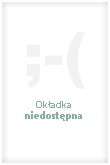
Abolition of Man
18.74 € -
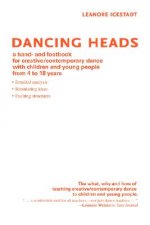
Dancing Heads
12.06 € -24 % -

Human Landscapes from My Country
28.41 € -21 % -

Corrected Squares of The Book of Abramelin
499.31 € -

Hanbo Jutsu: Use of Hanbo, Cane and Walking Stick for Self Defense
11.36 € -

Reading Mind - A Cognitive Approach to Understanding How the Mind Reads
21.43 € -27 % -

Freiarbeitsmaterial für die Grundschule - Deutsch - Klasse 1/2
22.63 € -4 % -

English Language & Literature WORKBOOK: York Notes for GCSE (9-1)
8.77 € -10 % -

North Korea's Military Threat
25.22 €
Osobní odběr Bratislava a 2642 dalších
Copyright ©2008-24 najlacnejsie-knihy.sk Wszelkie prawa zastrzeżonePrywatnieCookies


 Vrácení do měsíce
Vrácení do měsíce Zdarma od 49.99 €
Zdarma od 49.99 € 02/210 210 99 (8-15.30h)
02/210 210 99 (8-15.30h)